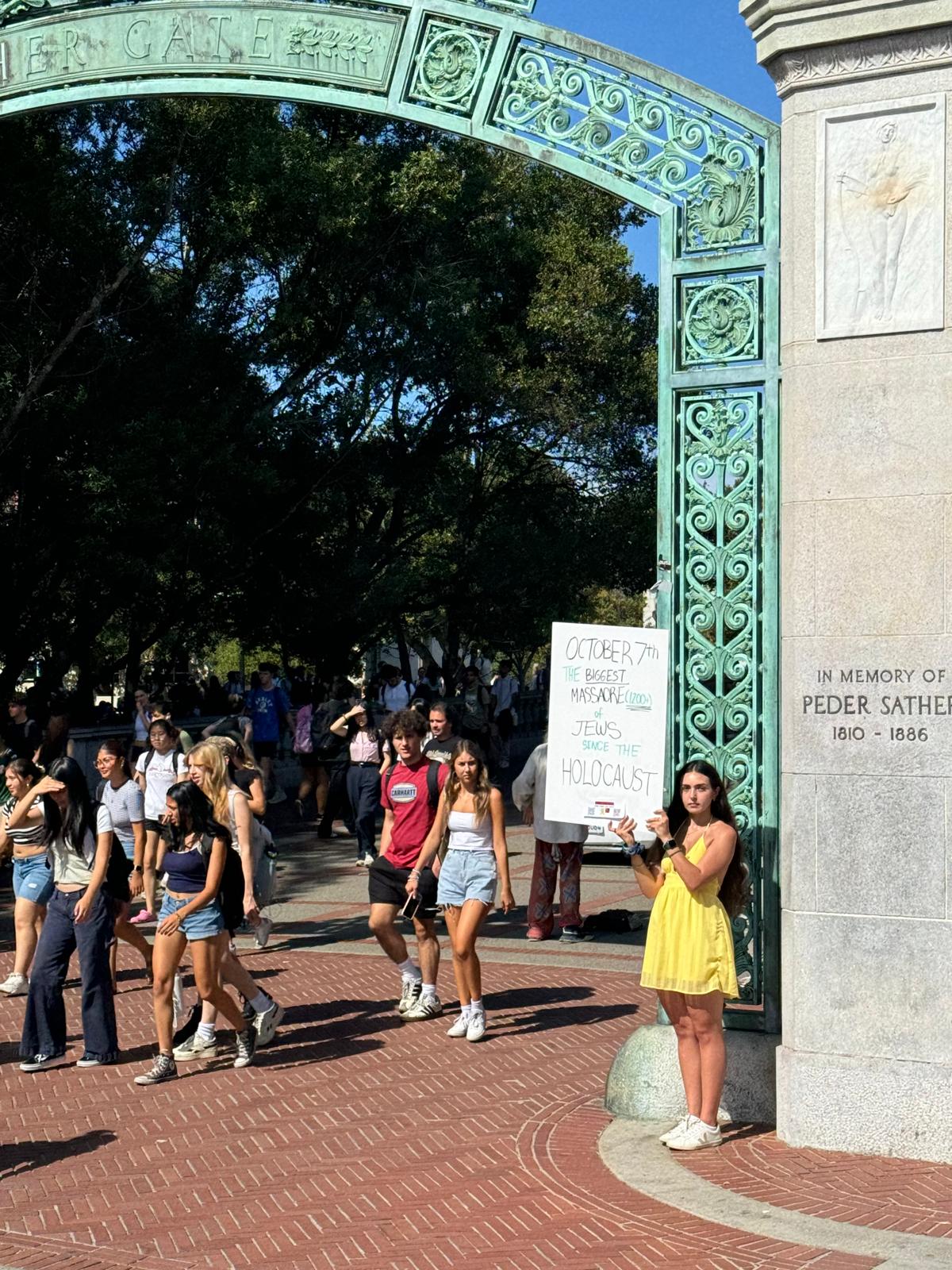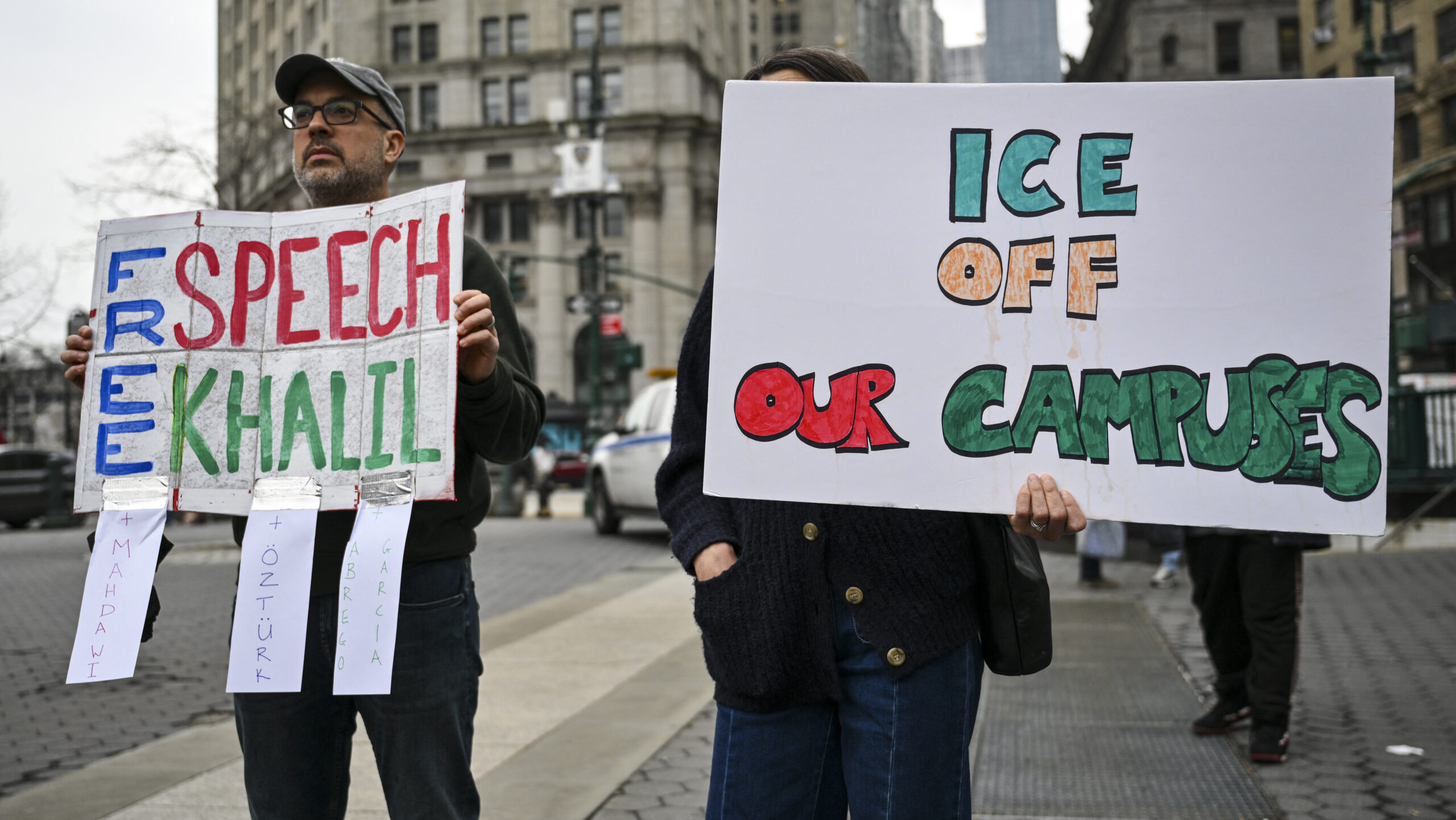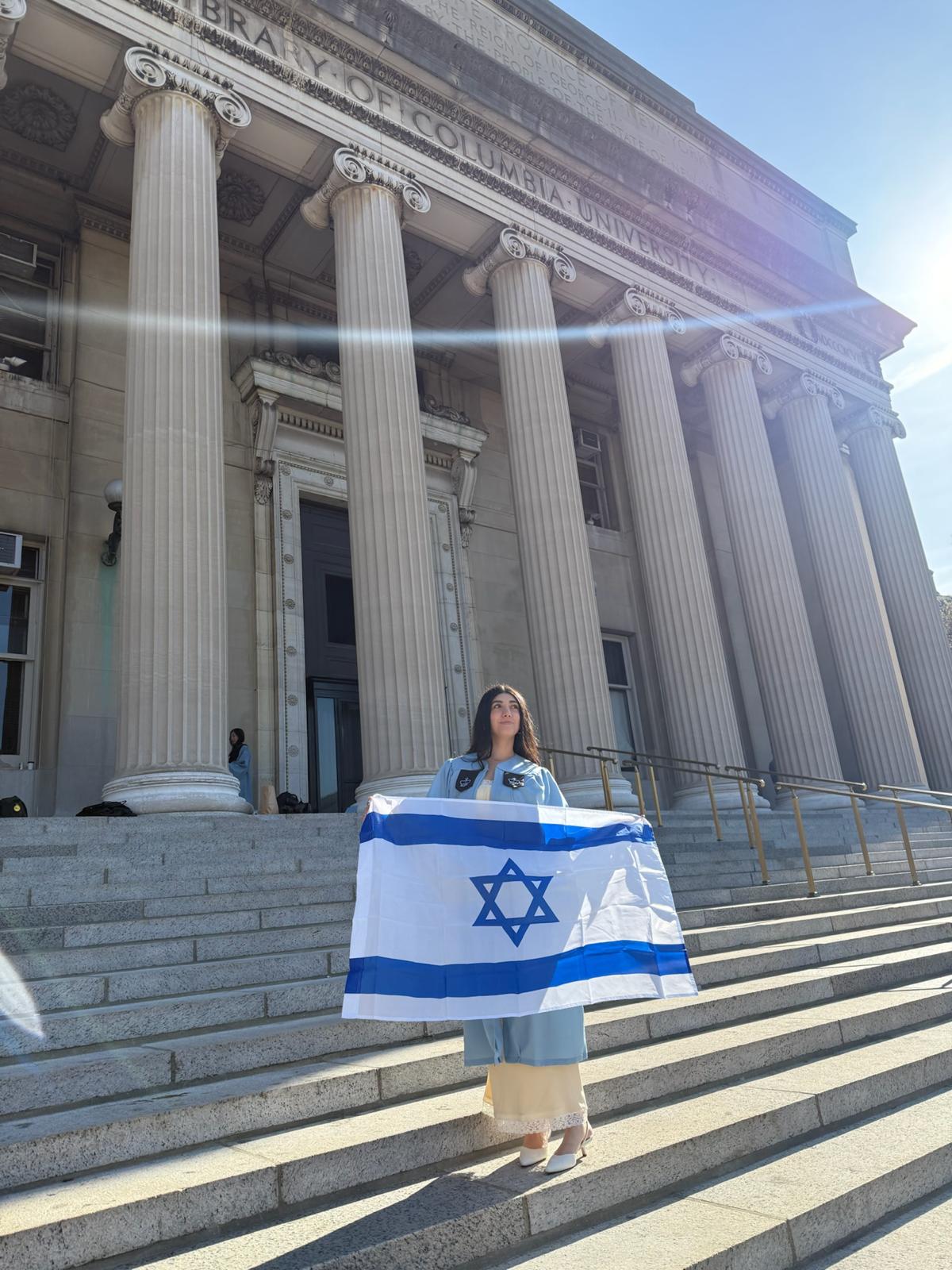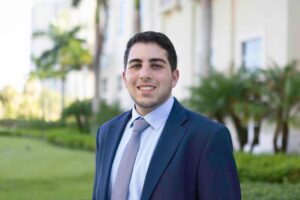Is the Crackdown on Foreign Students, School Funding Helping or Hurting the Fight Against Antisemitism?
The Trump administration’s crackdown on campus antisemitism—including visa revocations, deportations, and funding freezes—has divided students and alumni
It is “unfortunate” that university leadership has been either unwilling or unable to protect Jewish students, forcing the federal government to intervene, said Eden Yadegar, 21, a senior at Columbia University.
“It’s a stain on higher education that we got to the point that the federal government needs to step in,” Yadegar told The Media Line. “It’s unfortunately the only solution at this point.”
Yadegar was responding to recent moves by the Trump administration to revoke visas and deport thousands of international students—some of whom, the administration says, have supported terrorism—as well as to freeze funding to colleges that refuse to combat antisemitism and anti-Israel sentiment. These include protests that have featured open support for the Hamas terror group.
She said she is “optimistic” that the new policies will be effective, especially after months of Jewish students “screaming” about the harassment and discrimination they have faced since October 7—and even earlier.
I think when we have exhausted every other option—testifying before US Congress, filing lawsuits. These all should have been effective tactics, but it seems like universities are only willing to make these necessary changes when they have been put in an existential situation, where the existence potentially of the university is at risk—and that is because of the leverage of federal funding.
“I think when we have exhausted every other option—testifying before US Congress, filing lawsuits,” Yadegar said. “These all should have been effective tactics, but it seems like universities are only willing to make these necessary changes when they have been put in an existential situation, where the existence potentially of the university is at risk—and that is because of the leverage of federal funding.”
Columbia University’s website shows that about 20% of its funding comes from the government.
We don’t want to see the universities fail. Universities like Columbia are defining institutions of our country, and it should be in all of our interests to do what we can to reform them and return them to their core mission of research and academic excellence and real academic freedom and rigorous debate.
“We don’t want to see the universities fail,” Yadegar stressed. “Universities like Columbia are defining institutions of our country, and it should be in all of our interests to do what we can to reform them and return them to their core mission of research and academic excellence and real academic freedom and rigorous debate.”
Last week, in the latest effort by the Trump administration to halt widespread antisemitism on college campuses, the administration froze $2.2 billion of Harvard’s funding and $60 million in contracts. Trump also threatened to revoke the university’s tax-exempt status after Harvard said it would defy the administration’s demands to overhaul its admissions, hiring, and disciplinary processes.
In addition, according to an Associated Press report, at least 1,024 students at 160 colleges, universities, and university systems have had their visas revoked or their legal status terminated since late March. Many of those students have filed lawsuits against the Trump administration, arguing that they were denied due process.
Give the gift of hope
We practice what we preach:
accurate, fearless journalism. But we can't do it alone.
- On the ground in Gaza, Syria, Israel, Egypt, Pakistan, and more
- Our program trained more than 100 journalists
- Calling out fake news and reporting real facts
- On the ground in Gaza, Syria, Israel, Egypt, Pakistan, and more
- Our program trained more than 100 journalists
- Calling out fake news and reporting real facts
Join us.
Support The Media Line. Save democracy.
While some of the individuals being detained and deported have drawn media attention, such as pro-Palestinian activist Mahmoud Khalil, who led vocal and, at times, dangerous protests against Israel since October 7, critics argue that most of the visa revocations are not for this reason. In some cases, there is no clear indication that the affected students were involved in protests at all.
There are a lot of people who are happy with what is going on. They are happy that at long last someone is doing something to fight antisemitism. I think, on the other hand, there are a lot of concerns about how this is happening.
“There are a lot of people who are happy with what is going on. They are happy that at long last someone is doing something to fight antisemitism,” said Rotem Spiegler, a 2019 graduate of Harvard Law School. “I think, on the other hand, there are a lot of concerns about how this is happening.”
Spiegler told The Media Line that while some of the Trump administration’s actions clearly target the rise in antisemitism, others are less straightforward. She expressed concern that specific measures could actually provoke further hostility toward Jews and Israel, depending on how they are implemented.
She acknowledged the issue’s complexity. While she believes individuals who break the law or support terrorism should be held accountable, she questioned the sweeping nature of the current policies. In particular, she noted that many visa revocations seem to be occurring without clear justification, raising the risk that innocent students, including Israelis and other law-abiding foreigners, could be caught in the crossfire.
Her husband, Yuval, who is currently studying at Harvard, added that the lack of transparency around the deportations makes it difficult to judge the legitimacy of the government’s actions.
It’s so hard to make any normative assessment… We have no idea.
“It’s so hard to make any normative assessment… We have no idea,” he said, noting that in most cases, the names of the students and the reasons for their removal have not been made public.
Another Harvard student, Jos Joseph, shared his perspective in an opinion piece for The Hill. In it, he argued that “Harvard didn’t do enough to protect Jewish students and faculty when protests broke out over the conflict in Gaza.” He described the campus atmosphere as hostile, writing that “Harvard Yard became a battleground and attracted characters that seemed more intent on degrading Jews than stopping the carnage in Gaza. Or even worse, using the plight of the Palestinians in Gaza to push a culture of intolerance here in the United States.”
Still, Joseph noted that alumni pressure prompted Harvard to take some steps over the last 15 months, such as preventing certain students from participating in graduation and removing leadership from the Middle Eastern Studies Center.

Sharon Knafelman a third year Fiat Lux scholar at UC Berkeley stands at Sather Gate memorializing the October 7th attack one year later. (Courtesy)
But Joseph also criticized the federal government’s response. Referring to an April 11 letter sent to Harvard calling for sweeping reforms, he wrote that the proposals “are not consistent with the values of the US” and accused Trump of “channeling a Soviet-style approach to regulating our education.” He added that the demand for audits of campus viewpoints “goes against everything sacred in the First Amendment.”
According to The New York Times, officials in the Trump administration have since claimed the letter may have been sent in error. Harvard’s refusal to comply with the demands in that letter reportedly triggered the freeze in federal funding.
Joseph’s concerns are echoed by other American Jews who have voiced discomfort with the administration’s crackdown, citing fears over free speech and due process, but who also agree that universities must take stronger action to combat antisemitism.
“Harvard’s fighting the Trump administration harder than it’s ever fought antisemitism,” the Harvard Jewish Alumni Association tweeted on April 15. A day earlier, the organization posted: “Harvard declares it will resist changes to its governance, but where’s the statement outlining what it WILL do instead to fight antisemitism?”
Ethan Winterstein, a senior at Cal State Fullerton, said many students are protesting the Trump administration’s actions. However, he noted that in too many cases, these protests are being organized by anti-Israel activists who are attempting to link opposition to deportations with the Palestinian cause. He said the rhetoric often appears alongside Palestinian flags at these events, which makes him uncomfortable, because, in his view, defending free speech and transparency around deportations should not be conflated with support for Hamas.
Nonetheless, Winterstein, who is a vocal Zionist and Jewish student leader on campus, said he advises his followers not to counter-protest. He believes it creates bad optics, especially since pro-Israel students do not necessarily support Trump’s full deportation policy.
At the same time, Winterstein brings a personal perspective to the debate. As an immigrant from South Africa who holds a US green card, he said he has always been “fully aware of the consequences of my actions” and added, “I knew I had to tread lightly. The guidelines for everyone who gets a green card or a student visa are very clear.”
According to Sharon Knafelman, a junior at Berkeley, the situation on campus has improved since Trump took office and began taking steps to crack down on antisemitism. She said the Trump administration is “putting their money where their mouth is” and that it’s making a difference.
Funding needs to be taken away when Jewish students are put on the back burner and have to walk through crowds waving Hamas flags and wearing kaffiyehs, and when Jewish students are being assaulted on campus.
“Funding needs to be taken away when Jewish students are put on the back burner and have to walk through crowds waving Hamas flags and wearing kaffiyehs, and when Jewish students are being assaulted on campus,” Knafelman told The Media Line. “This new administration [is] finally making it known that if you are not genuinely combating antisemitism on your campus, then you are going to face the consequences.”
She added that international students like Mahmoud Khalil should not be allowed to disrupt campus life or prevent American students from having a normal college experience.
“There is freedom of speech, but if you are here on a student visa, you should not be taking away the privileges of American students at universities to be able to go to class and walk on campus,” Knafelman said. “You have no right to come from Syria and get access to renowned institutions that American students can only dream of—and then take over school buildings and create an environment of harassment. Absolutely not. You are not an American citizen. And even American citizen students who act this way should face consequences.”







